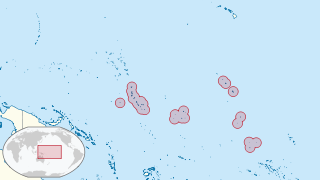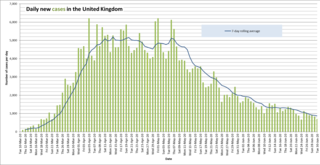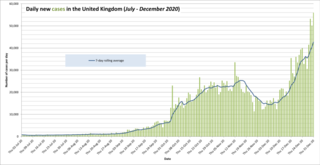Related Research Articles
The Rough Sleepers Initiative was an initiative by the Government of the United Kingdom's Rough Sleepers Unit (RSU), which resulted from a campaign by St Mungo's, a London homelessness charity, called National Sleep Out Week. It was designed to accommodate homeless people with emergency hostels.

In England, local authorities have duties to homeless people under Part VII of the Housing Act 1996 as amended by the Homelessness Act 2002. There are five hurdles which a homeless person must overcome in order to qualify as statutory homeless. If an applicant only meets the first three of these tests Councils still have a duty to provide interim accommodation. However an applicant must satisfy all five for a Council to have to give an applicant "reasonable preference" on the social housing register. Even if a person passes these five tests councils have the ability to use the private rented sector to end their duty to a homeless person.

Homelessness in the United Kingdom is measured and responded to in differing ways in England, Scotland, Wales and Northern Ireland, but affects people living each of the countries of the United Kingdom. Most homeless people have at least a modicum of shelter but without any security of tenure. Unsheltered people, "rough sleepers", are a small minority of homeless people.

Homelessness, also known as houselessness or being unhoused or unsheltered, is the condition of lacking stable, safe, and functional housing. It includes living on the streets, moving between temporary accommodation with family or friends, living in boarding houses with no security of tenure, and people who leave their homes because of civil conflict and are refugees within their country.

Louise Casey, Baroness Casey of Blackstock,, is a Crossbench peer and current British government official, where she serves as Lead Non-Executive Director.

St Mungo's, is a charity registered in England to help people experiencing homelessness. It currently operates in London, Bristol, Oxford, Bournemouth, Christchurch and Poole, Brighton, and Reading.
Domestic violence and abuse in the United Kingdom are a range of abusive behaviours that occur within relationships. Domestic violence or abuse can be physical, psychological, sexual, financial or emotional. In UK laws and legislation, the term "domestic abuse" is commonly used to encompass various forms of domestic violence. Some specific forms of domestic violence and abuse are criminal offences. Victims or those at risk of domestic abuse can also be provided with remedies and protection via civil law.

The COVID-19 pandemic in Kiribati is part of the ongoing worldwide pandemic of coronavirus disease 2019 caused by severe acute respiratory syndrome coronavirus 2. The virus was confirmed to have reached Kiribati on 18 May 2021.

The COVID-19 pandemic in Scotland is part of the COVID-19 pandemic of coronavirus disease-2019, caused by the virus SARS-CoV-2. The first case of COVID-19 was confirmed in Scotland on 1 March 2020. Community transmission was first reported on 11 March 2020, and the first confirmed death was on 13 March 2020.
The COVID-19 pandemic was confirmed to have spread to Wales on 28 February 2020, with a case being reported in the Swansea area; this first known case was a person who had recently returned from Italy. The first known case of community transmission was reported on 11 March in the Caerphilly area.

In response to the COVID-19 pandemic in the United Kingdom, the UK Government introduced various public health and economic measures to mitigate its impact. Devolution meant that the four nations' administrative responses to the pandemic differed; the Scottish Government, the Welsh Government, and the Northern Ireland Executive produced different policies to those that apply in England. Numerous laws were enacted or introduced throughout the crisis.

The following is a timeline of the COVID-19 pandemic in the United Kingdom from January 2020 to June 2020.
The following is a timeline of the COVID-19 pandemic in England from January 2020 to June 2020. There are significant differences in the legislation and the reporting between the countries of the UK: England, Scotland, Northern Ireland, and Wales.

The following is a timeline of the COVID-19 pandemic in the United Kingdom from July 2020 to December 2020.
The Joint Biosecurity Centre (JBC) is a scientific body which seeks to advise United Kingdom government policy as part of the response to outbreaks of COVID-19, such as on testing deployment, international travel, and the UK 'COVID-19 alert level'. Its existence was announced by Prime Minister Boris Johnson in May 2020. The body has been part of the UK Health Security Agency since the establishment of that agency on 1 April 2021.
The Whitechapel Centre is a homeless day-centre and registered charity in Langsdale Street, Liverpool, England. Established in 1975, it works with people in the Liverpool and Sefton areas, offering advice and information about housing. The centre is open 12 hours a day for 365 days a year. From 2018 until the COVID-19 pandemic in March 2020, the Whitechapel Centre also offered a night shelter, Labre House.

Homeless individuals are more likely to contract COVID-19 than those with permanent housing access. This is due to the environments that homeless people live in, which often suffer overcrowding and/or a lack of access to adequate sanitation. Homeless individuals are also more likely to suffer underlying health conditions, which increases the risk of death caused by COVID-19. The closure of public facilities has negatively impacted the homeless population, as reduced access to toilet facilities and support services has affected their hygiene and mental health respectively. Initiatives have been introduced by governments and at local levels in attempts to reduce the impact on the homeless.
The following is a timeline of the COVID-19 pandemic in England from July 2020 to December 2020. There are significant differences in the legislation and the reporting between the countries of the UK: England, Scotland, Northern Ireland, and Wales.

This article outlines the history of the COVID-19 pandemic in the United Kingdom. Though later reporting indicated that there may have been some cases dating from late 2019, COVID-19 was confirmed to be spreading in the UK by the end of January 2020. The country was initially relatively slow implementing restrictions but a legally enforced stay-at-home order had been introduced by late March. Restrictions were steadily eased across the UK in late spring and early summer that year.

Regional economy in Wales is centred on four regional economic boards in Wales. Each board oversees a city or growth deal, signed between 2016 and 2022, lasting 10–15 years. Two of the deals are city deals signed and proposed by their respective economic boards, and their areas are described as "city regions"; the Cardiff Capital Region and Swansea Bay City Region. Whereas in North Wales, the North Wales Economic Ambition Board negotiated a North Wales growth deal signed in 2020, and in Mid Wales, the Growing Mid Wales Partnership, led negotiations for a Mid Wales growth deal signed in 2022. The programmes are based on the City deal and Growth deal initiatives set up by the Coalition UK Government in 2012, to promote the decentralisation of the UK economy, by stimulating local economic growth.
References
- 1 2 Whitehead, Christine; Rotolo, Martina (2021-05-10). "Everyone In: The Numbers". LSE London. Archived from the original on 2024-07-17. Retrieved 2025-02-03.
- ↑ Munro, Craig (2025-02-01). "Rough sleeping 'almost ended' over lockdown - what has gone wrong since?". Metro. Retrieved 2025-02-03.
- ↑ "Rough sleeping snapshot in England: autumn 2020". GOV.UK. Retrieved 2025-02-03.
- ↑ Garcia, Francisco (2021-01-10). "In the first lockdown, England proved it could end homelessness. Why not now?". The Guardian. ISSN 0261-3077 . Retrieved 2025-02-03.
- ↑ "Ending rough sleeping, House of Commons, 8 September 2021 | Local Government Association". www.local.gov.uk. Retrieved 2025-02-03.